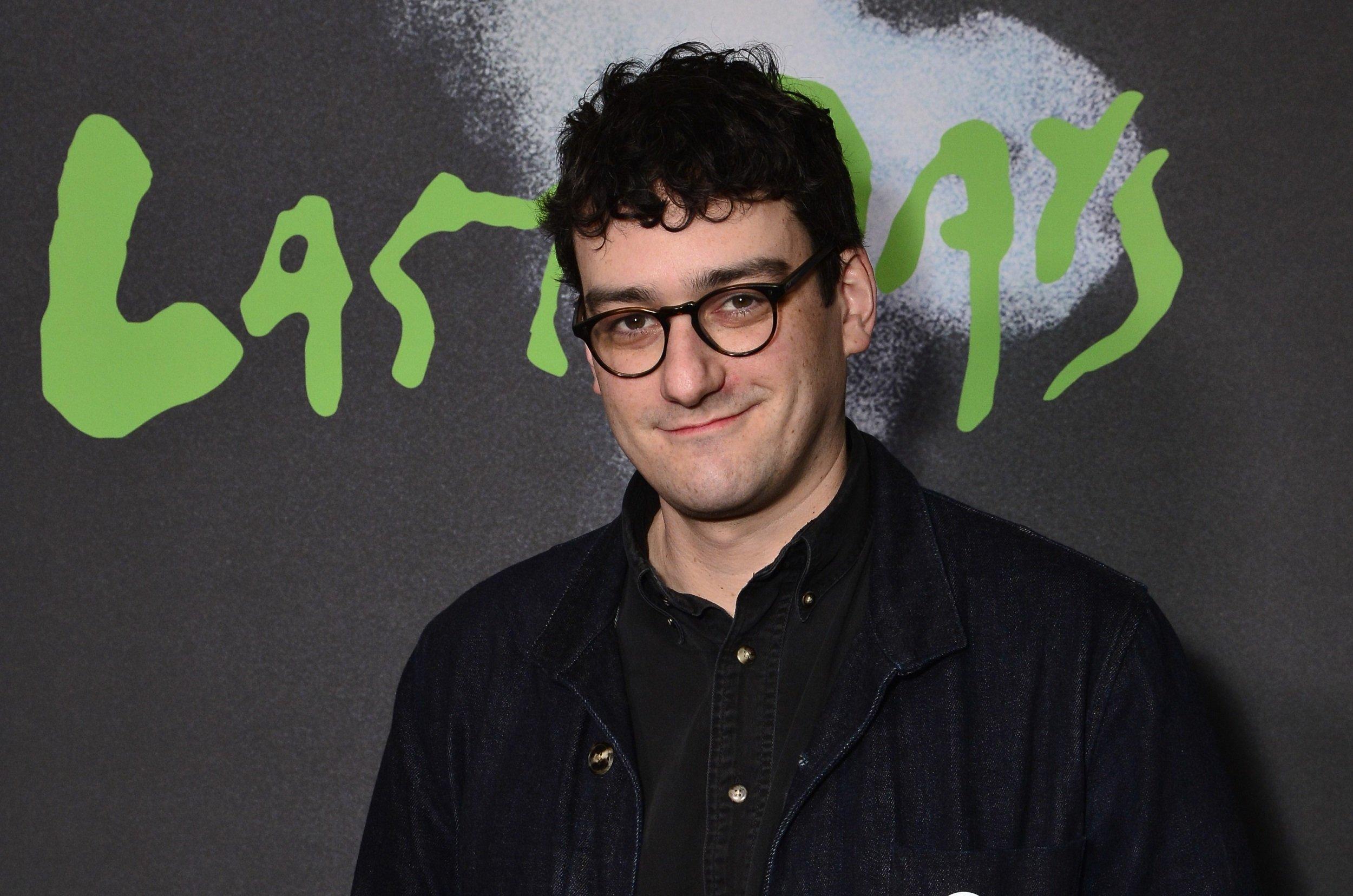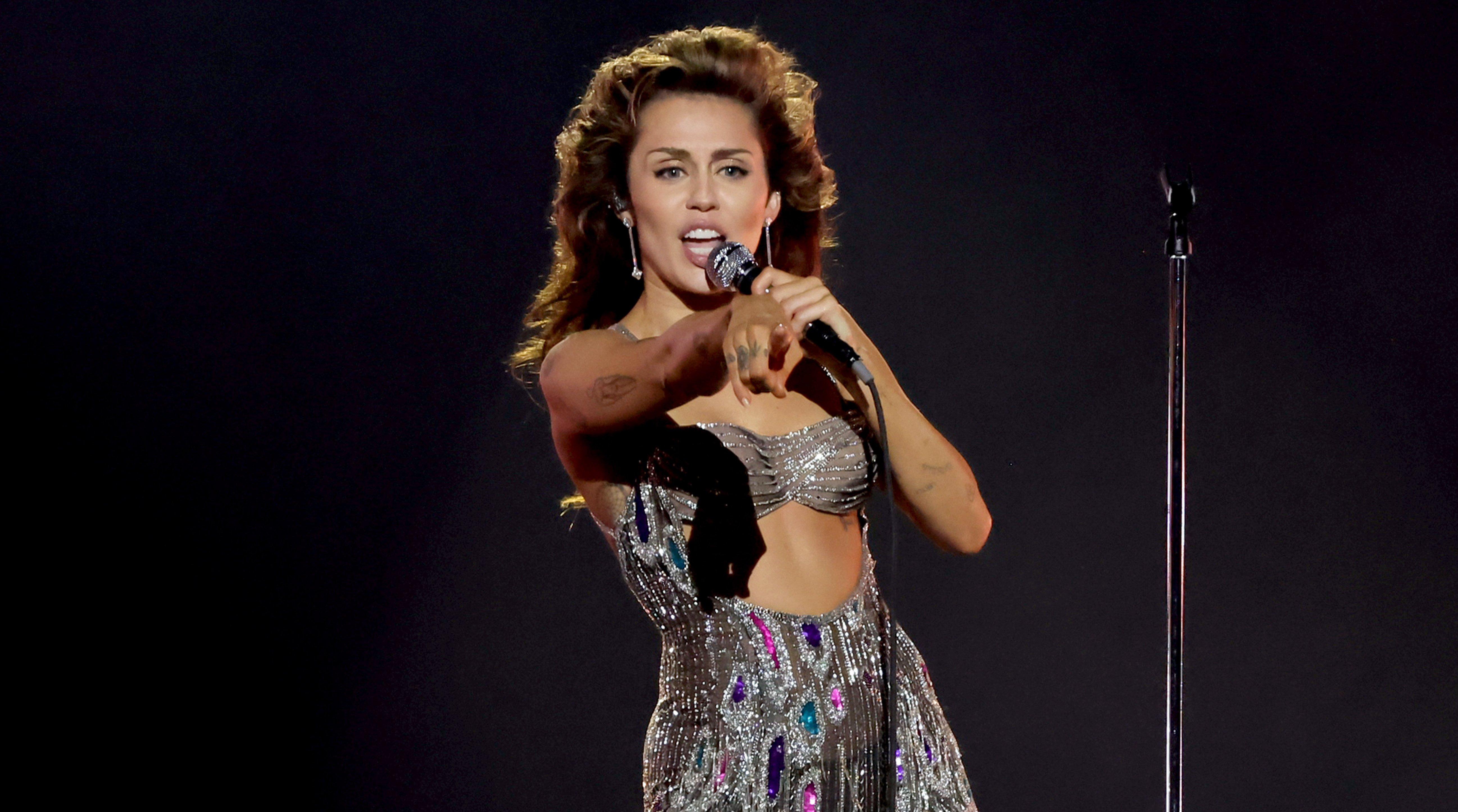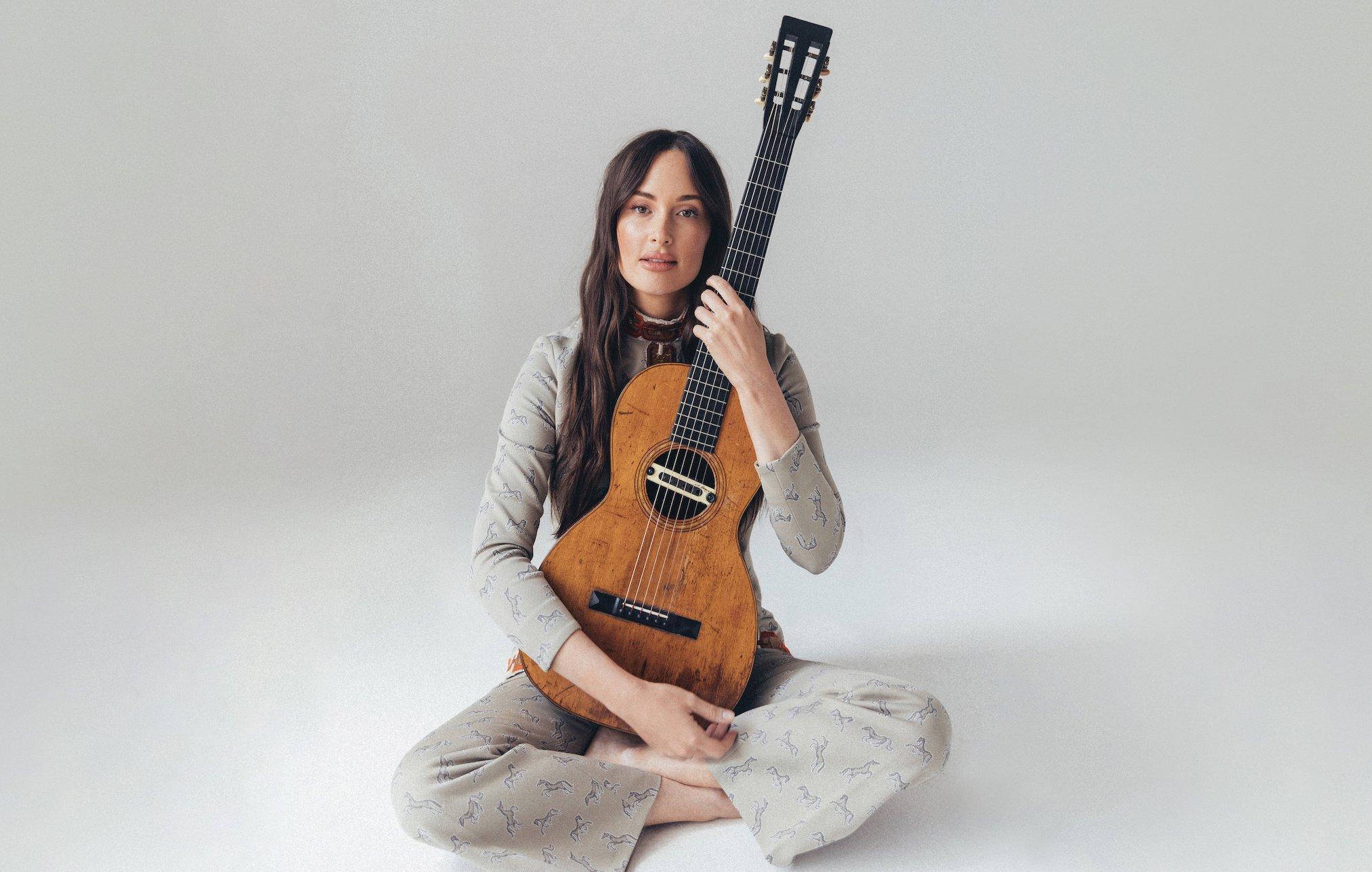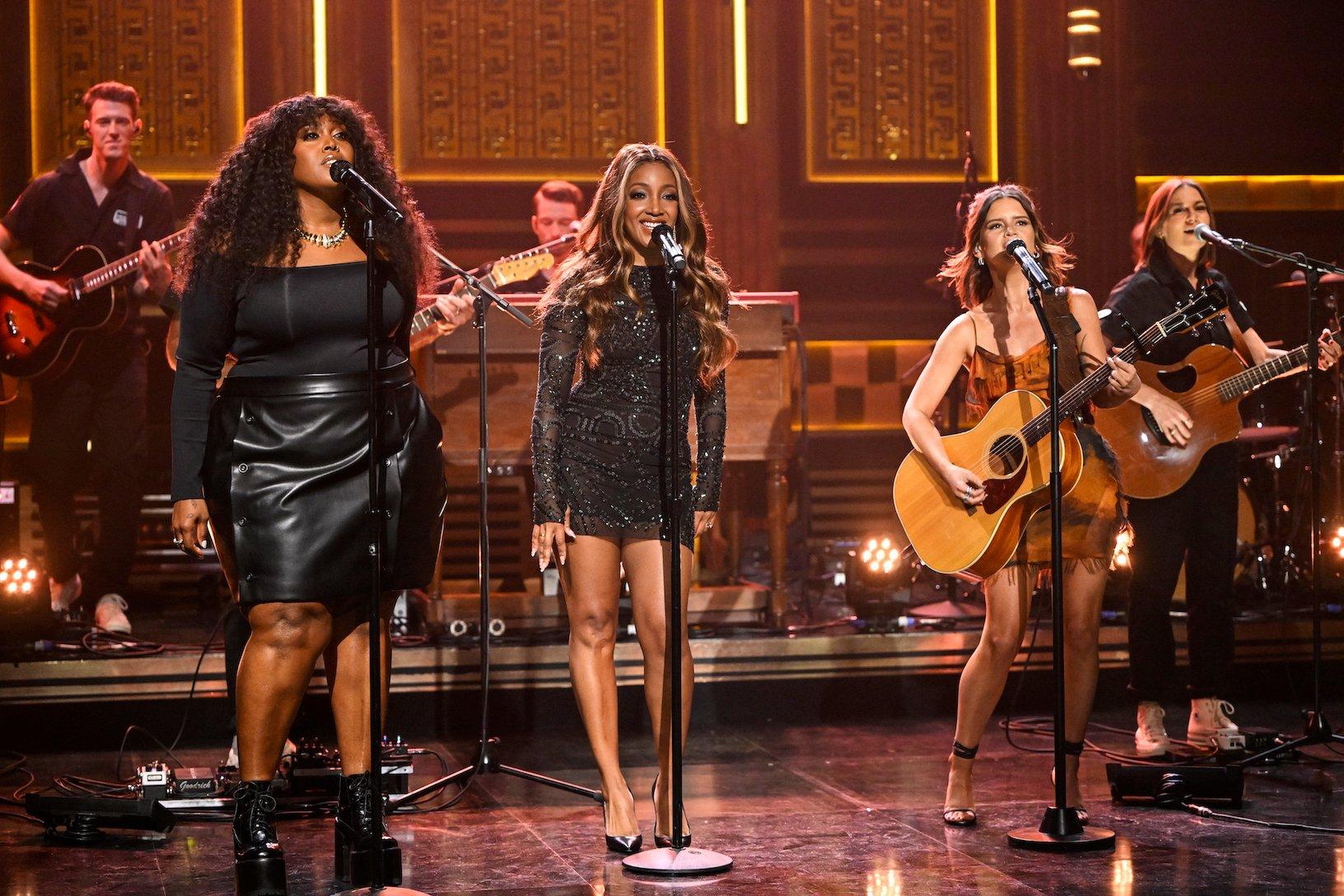**"I’ve got an obsessive mind," admits producer Danny L Harle. "I often can't sleep at night because I've got melodies circling in my head. I get haunted by melodies, and I think that's why some people trust me, because they know that I will not let it go unless I think it's absolutely perfect."
That dedication to crafting powerful pop melodies has resulted in a treasure trove of earworms on Dua Lipa’s new album Radical Optimism. Harle was recruited by Lipa as one of the album’s co-producers, alongside Tame Impala’s Kevin Parker and songwriters Tobias Jesso Jr and Caroline Ailin.
It's no surprise that Harle was recruited to craft a record that seeks to find light and happiness where darkness prevails. Since his 2015 debut EP Broken Flowers, Harle has created dance-pop that examined the relationship between melancholia and euphoria, as well as the grandeur and escapism of a rave.
After releasing a string of singles via PC Music, Harle dropped his first album, Harlecore, in 2021 with Mad Decent. The ecstatic spirit of Harlecore, which is centered around a virtual rave headed by four imaginary DJs, echoes in Harle’s latest collaboration as co-writer and producer of the UK’s Eurovision song, "Dizzy" by Olly Alexander.
"There is good pop music and more algorithmic pop music, pop music which is more guaranteed to work and is less interesting," Harle says. "I just really like good pop music, and that, for me, always seems to start from my research with people."
It was Harle’s naturally synergistic approach to collaboration that led to his work with Lipa. He has also worked with yeule on their album Glitch Princess, and the likes of Charli XCX. But it was his production and writing on singer Caroline Polachek's debut solo album that caught Dua Lipa's ear. "She appreciated the spirit of collaboration with that album and wanted me to make her album."
Read below to get a taste of how Danny Harle made Radical Optimism and other earwormy, dancefloor hits.
This interview has been edited for clarity.
Hey Danny! What’s that cool instrument behind you?
It’s an electric double bass, which is my main instrument: bass guitar and double bass. I use that on some of the Caroline Polachek stuff. There's certain artists who come into the room and see that and they're like, "We have to use that." And some people try to pretend it doesn't exist.
It’s fascinating; I used to play that instrument when I was younger, and then gave it up. There was a 10 year gap, and then I found a place much later in my life where it could fit in. I stopped playing bass guitar at one point as well.
Then I found myself in a session with NAO, and she was like, "Can you play bass guitar?" There was one literally on display outside, the Squire bass, so I picked it up and we made a track together. She was in a session with Nile Rodgers the next day playing it to him, and he loved it, and then it was on the Chic album [It’s About Time]! At that point I lost any preconceptions I had about needing good gear to make a great sounding music.
Did you do a lot of the bass work on Dua’s album?
I did a fair amount of it, but a lot of it is a collaboration with me and Kevin Parker. All that time he's spent touring and playing the bass live is time that I've spent in front of a computer. So it's hard to compare bass skills, as much as it's my instrument.
Alongside being a great live player, Kevin has a particular skill for making an instrument sound great when it is recorded, which is a completely different thing. There were some times where I was like, "I prefer the way that it sounds when you do it." And then sometimes he would ask me to do it as well. It was a really nice, trusting partnership.
The process of the album was very trusting; a sense of being able to say when you think something could be better, but also understanding that trusting someone else is good at what they're doing. It was a very rare environment, but the atmosphere of respect and trust was quite an incredible thing to experience. If you hear what anybody says involved in that process, they'll say those are some of the best sessions they’ve ever had in that respect.
We were talking about this key Motown idea, which is that happy songs go best over a sad melody. It doesn’t have to be the melody, it can be the music sounding sad; "Tears Of A Clown" by Smokey Robinson is a good example. There's something very resonant in that combination.
"Houdini," "Training Season" and "Illusion" are all in minor keys, aren’t they? It makes for such melodically rich stuff that’s different from your average four chord pop progression.
Yup. It’s not as simple as happy song, happy chords. It adds richness to the emotional landscape of the song, and that was a key element in that.
It was a room full of people who are excited by hearing new melodies and approaches and structures. That’s why you don’t really hear the same melodic patterns that music’s fallen into these days on the album. I find that particularly inspiring.
You’ve written with stars like Charli XCX and Rina Sawayama before, but this is your first extended project with a pop star. You first made pop music to engage people as a virtually unknown musician, but now that attention is guaranteed. Did that change the way you think about pop?
Not at all. My approach to this stuff, especially these days, is that I can just do my thing. I'm very honored to work with the people I've been working with. Very early on in my career when I was trying to make pop music in that way, it would always go horribly wrong. Whereas now I just try to make good music.
Some people can just make a pop song and I can't do that. I'm like, "Let's make a good song." I personally believe that there is good pop music and more algorithmic pop music, pop music which is more guaranteed to work and is less interesting. I just really like good pop music, and that, for me, always seems to start from my research with people just trying to make the best music.
How did you make this record more personal to Dua in terms of influences and not just lyrically?
It all stems from her at the center of it; so much stuff happens to her. It’s insane, the amount she’d have to say before every session — [like] "These tracks are actually making points."
Then it would be a case of finding an instrumental with a certain emotion, and out of natural conversation, there’d be a sense of connection [from] a phrase someone would hit on. [But] it would always stem from her as the center of the whole thing. It was just a very organic way of writing and we were very privileged with the rich life Dua leads to draw from.
This record was a tight songwriting team — where did you fit into it?
I was contributing to all of the tracks in all factors: lyric ideas most rarely, but also melodic ideas, songwriting ideas, mainly from a production standpoint.
I would be in the corner on my computer, and I would constantly be in conversation with everybody. We might have Kevin on a guitar, and then I’d be making some electronic arpeggios to go with that. I’d be constantly AirDropping stuff to Cam Gower, the greatest vocal engineer in the world, and he would be stacking what we had in ProTools. Sometimes I would take Cam’s session and put it into my computer — like with ‘Illusion’, because there’s stuff that goes on that affects the whole track in a way that I needed to do to get that dancey feel.
It's quite a global, almost old-fashioned producer role I was taking. I think that was a valuable thing for Dua in certain cases, because I would know about every song on the album. If we were writing with new writers, I'd be like, ‘we already said this idea in that song.’ I would have an eye on the whole thing and be a soundboard for the overall project.
Let’s start with the opening track, "End Of An Era" is unexpectedly calming and gentle. What prompted you guys to make this the opener?
I just love the idea of starting an album with the track called "End Of An Era"; it is quite an alarming thing to see. I love the tone of the track, the joy of it, but also the fairy-godmother-style commentary going over it as well.
It's about that heart-eyes emoji feeling of knowing you're irrationally in love in the moment where you rethink everything about your life. I just thought the emotion fit really well. The album has a story to it, and it's a great opener for that story.
The track "These Walls" expands Dua’s voice in a way I haven’t heard her sing before. Could you walk me through the production of that song?
With that song, I didn't want to get in the way of the purity of the message. It’s very important to understand when a track does not need to be a production showcase, you are in service of the storytelling.
It was all about making space for the great emotion of the song and having occasional moments of departure, and always being relevant to what is being said. When she says "Did you really mean it when you said forever?", the track disappears into a strange fantasy synth moment. That idea is [that] your mind might get taken away by the thought of forever, just for a moment, as a sort of impossible idea. That's what the music's doing — it takes you out and it lands you straight back into the track.
There’s also a moment of self-deprecating humor: "If these walls could talk / they’d say you’re f—ed.". Was that humor fostered by the close relationship all the songwriters had?
Absolutely. That kind of thing is often the most memorable bit of a song, if placed correctly in the most tasteful area. There’s a track on the yeule album Glitch Princess, where it’s these big Charles Ives chords I wrote. It sounds like it’s gonna be a nice piano ballad, but the first line is "feels like s—." [Laughs.] It takes you by surprise, but it fits with the mood of the track.
With Dua, it’s tastefully placing it where it fits in the story, and that point in the chorus, it felt perfect. It also reminds me of this idea in the [software] engineering world: the rubber duck principle. They have a rubber duck there because engineers will want to ask a question, but often when you’re asking the question, you’ll realize the answer to it. The rubber duck is there so you can ask the question and it’ll tell you the answer because you already knew it. ‘These Walls’ reminds me of that; if these walls are saying I’m f—ed, you know you’re f—ed.
The climax of the album is "Falling Forever." It’s super ballsy, and the drums are mixed so loudly. Tell me about how this track came to be.
It’s a beautiful one, that one. A great thinker said it sounds like a thousand galloping horses. That one came about in the sessions with [producer and songwriter] Ian Kirkpatrick. He came in with the chords you hear at the beginning, and I really enjoyed the idea of having a galloping rhythm. You don’t hear the gallop very often, I can’t think of one other song that’s done that in recent history.
I also thought up the "how long" thing — I thought it would be fun to make the word ‘long’ really long. Those were my key contributions to the song. Ian Kirkpatrick, his drums are so fantastic. You’ve gotta let him get on with it.
The vocals are also so close — there’s subtler production going on earlier in the album, but this song punches you right in the face.
It’s so great. It’s very much an approach that I have with singers where I want them to do a thing that makes their voice sound f—ing amazing. The first time I thought I achieved that with Caroline was with "Parachute," using everything her voice can do: the runs, the high register, the emotional low register. This is a showcase. "Falling Forever" does that with Dua. "These Walls" is an interesting comparison as well, it shows a real range of emotion that Dua is capable of in a way I find really exciting.
It’s indescribable to hear her sing in the room. I had the privilege of having her recording demo vocals on an SM-7 [microphone] like this sitting in front of her. It is unbelievable to hear that: just a human making that sound in front of you, it’s like nothing else. It’s like witnessing a wonder of the world. Also to use the specific, occasionally metallic sound she can make with her voice, to use it when necessary as part of an expression of something, the way she phrases things is incredible as well.
Does the message of Radical Optimism — of finding grace in the chaos — match the euphoria you want to explore in music?
There is a sense of melancholic euphoria as well, the Elizabethan side of things. I would say there's a Venn diagram of euphoria that fits with Dua.
On the track "Happy For You," there are certain ravey things going on where Dua was like, "What’s that sound?" It’s these chords Kevin wrote, and I start stuttering them.
Also the flute mellotron in the song "Maria," she was immediately like, "Yep: I love it." I was so happy because it’s so my thing, that cyclical melody. Also, the bit in "Illusions" before the chorus where it goes to a major chord before the chorus, I love the sound of the unexpected major chord. Having repeated moments like that, I think, was the reason why I was asked to stay on the project; we clearly had chemistry, but it was interesting how macro it was.
That unexpected major chord moment also appears in your Eurovision song with Olly Alexander, doesn’t it?
I've written some more tracks with him that do that. I've really been enjoying that with Olly because his voice is so agile and can really make sense of more complicated chord sequences.
Another thing I've been enjoying with him is when there's sparseness and letting the vocal melody spell out the harmony and maybe occasionally go minor and major over one bass note, which is something I really, really enjoy.
I've always been a big fan of Olly Alexander, I’ve wanted to work with him my whole career. I believe I tweeted at him in 2009 saying hi. But I think people who like my stuff could hear that he has the kind of voice that I really like: a very virtuosic, melodic voice. [We] just had immediate chemistry, musically. We've written a fair amount of music and he’s a very exciting artist to be involved with.
The UK has a pretty shaky track record with Eurovision. Did you feel any of that pressure?
No, there wasn't that thing in my head. I just love Olly’s voice. And collaborating with him is just fantastic. I've had ideas for Olly for years now, and it was a dream to be able to actually enact some of them.
What’s next in store for you?
My own album. I've got another one that I'm finishing up at the minute that I'm very excited about. It was delayed by two and a half years because I got all of my dream projects offered to me at the same time and I wanted to make sure that I did them all properly. But now I can get back to doing my own stuff.
It feels so good to be back at the grindstone, sitting in my studio writing beautiful things, making beautiful objects to present to the world. It’s the dream, really.
Behind Mark Ronson's Hits: How 'Boogie Nights,' Five-Hour Jams & Advice From Paul McCartney Inspired His Biggest Singles & Collabs




